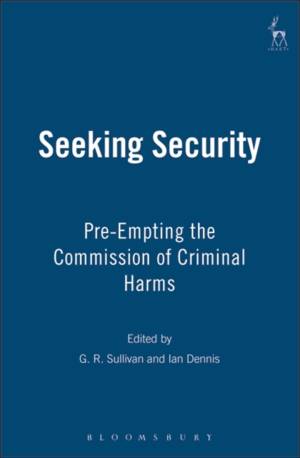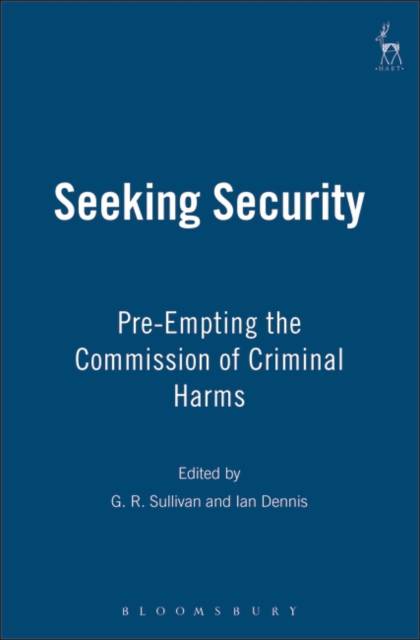
- Afhalen na 1 uur in een winkel met voorraad
- Gratis thuislevering in België vanaf € 30
- Ruim aanbod met 7 miljoen producten
- Afhalen na 1 uur in een winkel met voorraad
- Gratis thuislevering in België vanaf € 30
- Ruim aanbod met 7 miljoen producten
Zoeken
€ 296,95
+ 593 punten
Omschrijving
Many academic criminal lawyers and criminal law theorists seek to resolve the optimum conditions for a criminal law fit to serve a liberal democracy. The typical wish lists include a criminal law that intervenes against any given individual only when there is a reasonable suspicion that s/he has caused harm to the legally protected interests of another or was on the brink of doing so. Until there is conduct that gives rise to a reasonable suspicion of criminal conduct by an individual, s/he should be allowed to go about her or his business free from covert surveillance or other forms of intrusion. All elements of crimes should be proved beyond any reasonable doubt. Any punishment should be proportionate to the gravity of the wrongdoing, and, when the offender has served this punishment, the account should be cleared and good standing recovered. Seeking Security explores the gap between the normative aspirations of liberal criminal law scholarship and the current criminal law and practice of Anglophone jurisdictions. The concern with security and risk, which in large part explains the disconnection between theory and practice, seems set to stay and is a major challenge to the form and relevance of a large part of criminal law scholarship.
Specificaties
Betrokkenen
- Auteur(s):
- Uitgeverij:
Inhoud
- Aantal bladzijden:
- 370
- Taal:
- Engels
Eigenschappen
- Productcode (EAN):
- 9781849461665
- Verschijningsdatum:
- 13/04/2012
- Uitvoering:
- Hardcover
- Formaat:
- Genaaid
- Afmetingen:
- 157 mm x 236 mm
- Gewicht:
- 952 g

Alleen bij Standaard Boekhandel
+ 593 punten op je klantenkaart van Standaard Boekhandel
Beoordelingen
We publiceren alleen reviews die voldoen aan de voorwaarden voor reviews. Bekijk onze voorwaarden voor reviews.








